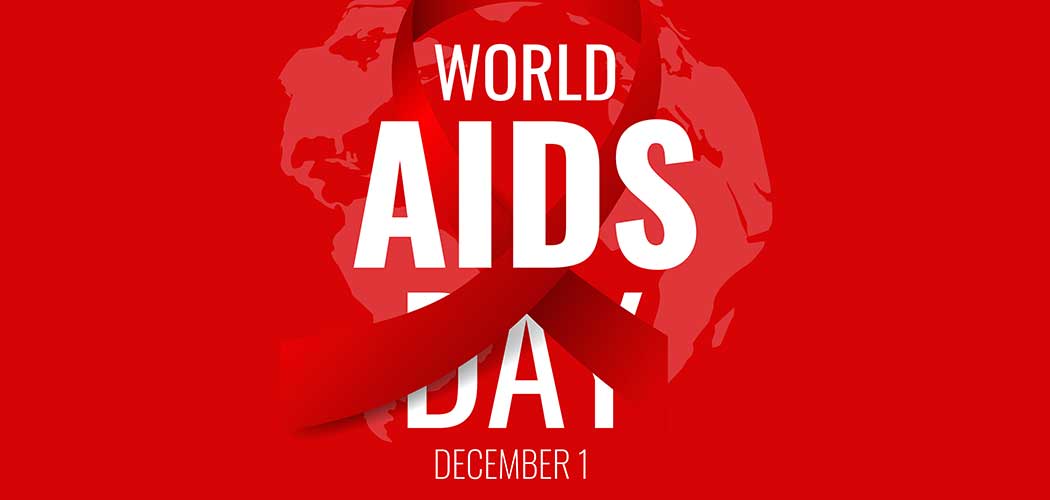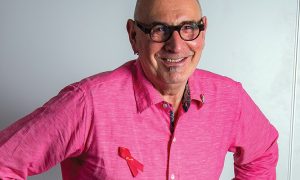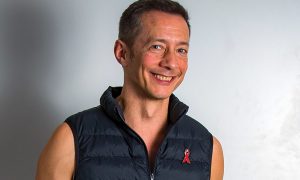The government has published a new HIV Action Plan to mark today’s World AIDS Day, backed by over £23 million of funding, to reduce new infections by 80% by 2025 and achieve zero new HIV infections and HIV-related deaths in England by 2030. The government has also announced for World AIDS Day that the Ministry of Defence will remove long-standing barriers to people living with HIV from serving in the armed forces.
The Action Plan will include investing £3.5 million in a National HIV Prevention Programme over 2021-2024 and increasing access to PrEP, a medication to prevent HIV infection. HIV testing will be scaled up in high-risk populations including Black Africans who remain the ethnic group with the highest rate of HIV but where testing uptake is low and to ensure new infections are identified rapidly. This will include expanding opt-out testing in A&E departments backed by an additional £20 million over the next three years.
Health and Social Care Secretary, Sajid Javid, said: “We will end new HIV infections in England by the end of the decade. We’ve made excellent progress already with transmissions continuing to fall across England and we are well on our way towards our ambition of zero HIV transmissions and deaths by 2030.
“The UK is leading the way to stamp out HIV and the new actions we are taking – from scaling up testing to increasing access to PrEP – will help people affected to live longer, healthier lives and eliminate this cruel disease for future generations.”
The government will commit to annually updating Parliament on the progress towards the 2030 target to end all new HIV transmissions and a new, national oversight group – the HIV Action Plan Implementation Steering Group – will be established to closely monitor progress and ensure current actions are on track to meet the 2025 and 2030 targets. The plan was developed with the help and expertise of the HIV Oversight Group, chaired by Dame Inga Beale, formed to continue the work of the independent HIV Commission which the Terrence Higgins Trust and National AIDS Trust set up in 2019.
The new HIV Action Plan aims to reduce the number of people first diagnosed in England from 2860 in 2019, to under 600 in 2025, to reduce the number of people diagnosed with AIDS within 3 months of HIV diagnosis from 219 to under 110 and to reduce deaths from HIV/AIDS in England from 230 in 2019 to under 115.
Dr Valerie Delpech, Head of HIV Surveillance at the UK Health Security Agency, said: “We have already made great progress in bringing down HIV transmission in England, but there is still a way to go. The steepest declines have been in white, gay and bisexual men who live in London. We are committed to preventing HIV in everyone regardless of ethnicity, sexual orientation and location.”
She added: “To end HIV transmission, we need to diagnose people early, start treatment quickly and make sure people stay on that treatment to ensure their virus is not detectable. People with undetectable virus cannot pass it on to sexual partners, even without condoms or PrEP.”
“The Action Plan sets out a clear path to achieve this and we will continue to learn from and share best practice with our partners. Together we will reach our goal of ending HIV transmission by 2030,” she added.
Meanwhile the Ministry of Defence has announced that being HIV positive or taking PrEP will no longer be a barrier to serving in the armed forces. Defence ministers have said that candidates taking PrEP will be accepted to join the military, while serving personnel who are HIV positive will be permitted to take part in operations.
Junior Defence Minister Leo Docherty said: ”Drug treatment has revolutionised the lives and outcomes of people diagnosed with HIV. As a modern and inclusive employer, it is only right that we recognise and act on the latest scientific evidence.”
As part of the changes, from today people who do not have HIV but who are taking PrEP (pre-exposure prophylaxis medication) to protect against potential infection will be able to join and serve in the armed forces with no restrictions. From early next year, serving British military personnel who have tested positive for HIV, but no longer carry a detectable viral load, will be classed as fully fit, meaning they can be deployed on military operations.
Officials said that “urgent work” is also underway to allow candidates with HIV, but on treatment and whose blood tests show no detectable virus, to also join. Historically, the military has not permitted candidates to join who take regular medications, citing the “logistical burden”.
Malcolm Clark and Kate Harris of the LGB Alliance wrote to the Defence Secretary Ben Wallace last month calling for the change. “Those who are HIV positive are no less patriotic than other Britons and it would be a powerful symbol of their acceptance as full citizens that they should be able to serve their country like anyone else,” said the LGB Alliance co-founders.
“Since the passage of the Equality Act (2010) it has been illegal to discriminate against someone in employment on the basis of a disability, and while some specific exemptions were granted where HIV was thought to present potential risks to the public or work colleagues, these have been gradually removed.”
“If serving soldiers, sailors and air crew who are HIV positive are good enough to keep as valued and brave personnel we urge the government to widen the talent pool of new recruits to include those who happen to be HIV positive,” said the LGB Alliance letter.
Ian Green, chief executive at the Terrence Higgins Trust called it the “right decision” and said there was “no reason” why those with HIV should not have the opportunity to serve. It’s crucial that all the medical progress that’s been made in HIV is reflected in our rules and regulations with the armed forces a clear outlier up until today. These changes must now be urgently implemented.
“Many people will be surprised to learn that this ban was still in place and its removal will mean a huge amount to people living with HIV wanting to join or already serving in the military.”
The planned changes were also welcomed by Deborah Gold, chief executive of the National AIDS Trust, who said: ”A career in the armed forces was the only career not open to people living with HIV in the UK, and with this much-needed change the military will be more able to meet its obligation to promote inclusivity within its ranks.”














